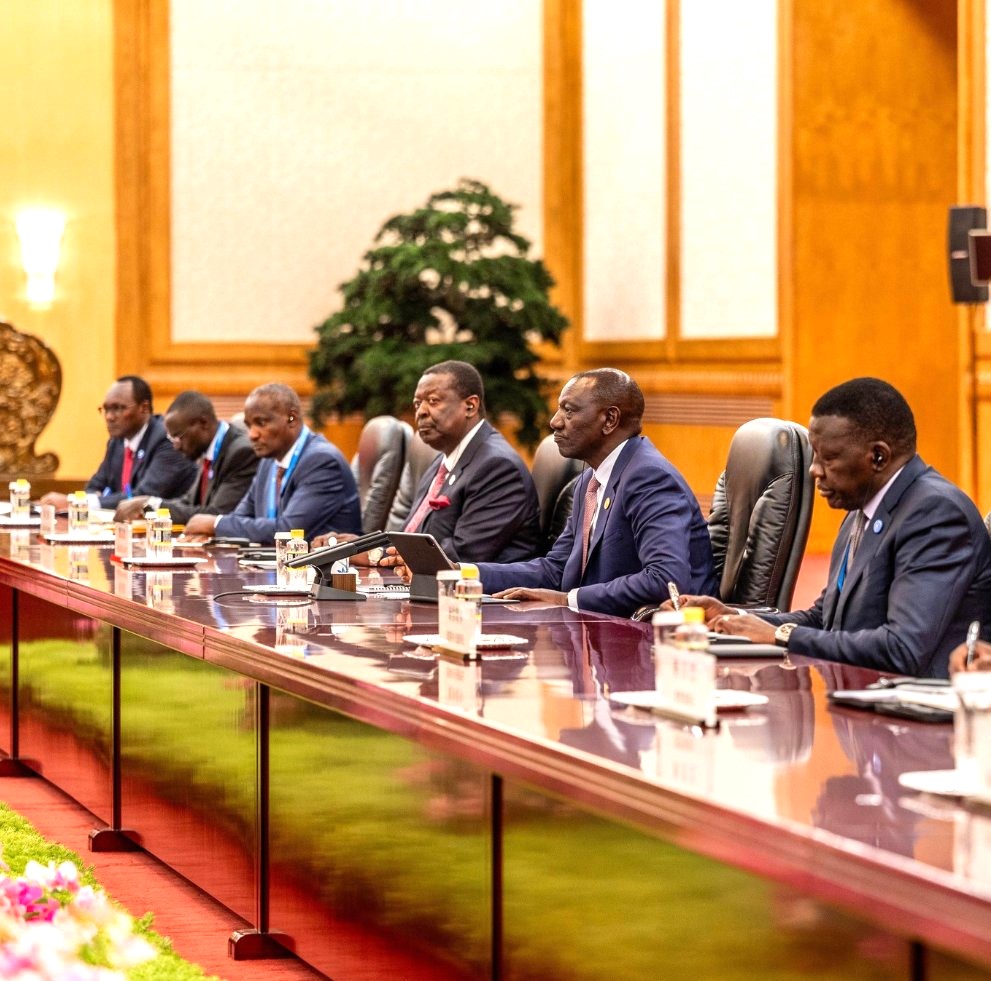The Cabinet has resolved to implement significant budget realignments in line with the Government’s policy of fiscal consolidation and commitment to living within its means. At a Cabinet meeting chaired by President William Ruto at State House, Nairobi on Tuesday, Cabinet Secretaries were instructed to work closely with the National Treasury to identify and execute necessary adjustments within their respective ministries and State departments.
The aim is to cap the fiscal deficit at no more than 4.5 per cent of GDP for the 2025/26 financial year, down from 5.3 per cent in 2023/24 and 5.1 per cent in 2024/25, with a medium-term target of 2.7 per cent. Consequently, the initial budget estimates of KSh4.3 trillion will undergo substantial revisions before being presented to Parliament. These revisions are part of broader austerity measures designed to bolster fiscal discipline, minimise public debt vulnerabilities, and create the fiscal space necessary for delivering essential public goods and services.
To support these objectives, the Cabinet also approved the Finance Bill, 2025, which prioritises closing loopholes and improving tax administration efficiency. The Bill targets gaps that have historically enabled misappropriation of public funds, such as through inflated tax refund claims.
Importantly, the Bill seeks to minimise new tax-raising measures. Instead, it introduces a strengthened legislative framework aimed at enhancing tax efficiency. Key provisions include the streamlining of tax refund procedures, sealing legal loopholes that delay revenue collection, and reducing tax-related disputes through proposed amendments to the Income Tax Act, VAT Act, Excise Duty Act, and the Tax Procedures Act.
Small businesses stand to benefit from a provision allowing the full deduction of costs incurred on tools and equipment in the year of purchase, thereby removing delays in accessing tax relief.
Retirees will enjoy significant benefits as all gratuity payments, whether under public or private pension schemes, will now be fully exempt from tax, ensuring dignity and financial security for Kenya’s senior citizens.
Furthermore, employers will be mandated to apply for all eligible tax reliefs and exemptions when calculating Pay As You Earn (PAYE) taxes. This corrects the current situation where many employers omit such reliefs, forcing employees to seek refunds from the Kenya Revenue Authority.
These reforms are anchored in the Bottom-Up Economic Transformation Agenda (BETA) and reflect the Government’s commitment to building a stronger, more inclusive economy. To enhance fiscal predictability and emergency preparedness, the Cabinet also approved the Public Finance Management (Amendment) Bill, 2024. The Bill will make it mandatory for all county governments to establish County Emergency Funds, a step inspired by the shortcomings exposed during the 2023 El Niño rains.
This follows extensive consultations and a directive issued during the 24th Ordinary Session of the Intergovernmental Budget and Economic Council (IBEC) in August 2024. The amendment aims to enhance counties’ capacity to respond rapidly to emergencies, thereby safeguarding lives, livelihoods, and critical infrastructure.
Demonstrating its commitment to governance and the independence of the judiciary, the Cabinet endorsed the Judges Retirement Benefits Bill, 2025. The legislation establishes a dedicated pension and benefits framework for judges of the superior courts, distinct from the general Pensions Act, and recognises the unique demands of judicial service.
The Bill proposes a Defined Benefit scheme for current judges and a Defined Contribution scheme for future appointees, aligning with wider public sector pension reforms. It includes enhanced benefits such as monthly pensions, gratuities, medical cover, and diplomatic privileges for retired judges and their spouses, supporting their dignified retirement after years of service under high ethical standards.
In further support of Universal Health Coverage (UHC), the Cabinet approved the construction of two Level VI teaching and referral hospitals in Bungoma and Kericho counties, in partnership with the African Development Bank. This initiative seeks to improve access to quality healthcare in underserved regions.
To stimulate investment and deepen capital markets, the Cabinet also sanctioned amendments to the Capital Markets Act to eliminate shareholder limits in regulated institutions. While robust governance frameworks will remain, the Cabinet Secretary retains the discretion to impose limits on specific license categories if deemed necessary. These changes are not anticipated to affect government revenue.
Additionally, the Cabinet approved the Draft Pest Control Products Bill, 2024, which modernises pest control regulation in Kenya. The Bill creates the Pest Control Products Authority and aligns regulatory frameworks with both constitutional and international standards. It aims to enhance food safety, protect public health and the environment, and boost agricultural exports.
Lastly, the Cabinet authorised the establishment of a Consulate General in Port-au-Prince, Haiti. This move affirms Kenya’s dedication to global peace and security and strengthens its diplomatic footprint in the Caribbean. The consulate will offer critical support to Kenya’s leadership role in restoring stability and the rule of law in Haiti.





